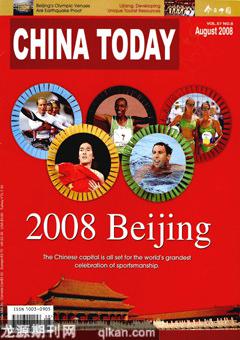Translators and Interpreters:A Meeting of Friends

Between August the 2nd and the 7th, on the eve of the Beijing Olympic Games, hundreds of translators from around the world, as well as people from research and business circles, will gather in Shanghai for the XVIII World Congress of the International Federation of Translators (FIT). Jointly hosted by the FIT and the Translators Association of China (TAC), the Congress will explore the theme of linking translation and cultural diversity in a bid to promote mutual understanding and avoid war. The following is a message from Mr. Koïchiro Matsuura, the general secretary of UNESCO, to the Congress of the International Federation of Translators.
UNESCO hails the holding of the XVIII World Congress of the International Federation of Translators, bringing together in the cosmopolitan city of Shanghai hundreds of professional translators from all countries of the world, all backgrounds, and all cultures.
Almost 60 years ago, UNESCO supported the creation of the International Federation of Translators, which it saw as a strategic resource for the free movement of ideas and dialogue between cultures.
Since then, relations between UNESCO and the FIT have strengthened into an exemplary cooperation in several respects. Indeed, each FIT Congress has set a milestone toward achieving UNESCO goals.
The Berne Convention in 1972, the Recommendation on the Protection of Translators adopted by the Nairobi General Conference in 1976, and the birth of the review, Babel, a publication which UNESCO always supported, were all major steps along this path. The history of this cooperation was marked by many other episodes, probably more low-key, but just as important, whoselong-term effect has had an impact on the daily lives of tens of thousands of men and women directly or indirectly concerned by translation, a pivotal instrument of cultural exchange.
Throughout our shared history, this adventure bore the stamp of the intercultural and deeply humanistic nature of our common goals. Indeed, as UNESCO exists to raise the Defence of Peace in the mind of mankind, by fostering cultural diversity, it is the translators role to build that dialogue, in order to give effect to, and fit out, this cross pollination that underlies any civilization and its development.
You know it by experience: translators are pathfinders. They bridge the gap between worlds that sometimes appear incompatible, and overcome the obstacles of misunderstanding. They give everyone more linguistic freedom and offer access to knowledge to each person in their preferred language.
The theme linking translation and cultural diversity selected for your Congress is a fitting reflection of the end result of your numerous functions and their constructive impact on the diversity of cultures.
This link between the role of translators mediating culture and promoting cultural diversity, particularly in its linguistic aspect, appears all the more visible in this era of globalization, when the local and the global mingle as never before in the history of mankind.
Indeed, we are firstly, unquestionably witnessing an increasing appreciation of languages, of all languages in their uniqueness, whether they are working, national or local, but secondly, also a growing requirement to communicate beyond all linguistic or geographical borders or barriers.Both these requirements – difference and unity – can coexist smoothly through translation, which thus becomes a unique means of opening up channels and creating meeting grounds between the specific and the universal, between diversity and dialogue.
As it is aware of all this, UNESCO believes that continuing to support translators is an appropriate strategy in the pursuit of its fundamental objectives.
From this perspective, I am confident that your Congress will be most interesting and shed a new light not only on the professional challenges facing translation, but also on its growing importance for the future of mankind.
I therefore wish you successful and inspired debates, analyses and reflections!
TAC and the World Congress of FIT
The year 1987 saw TACs first participation in the XI World Congress in Maastricht, the Netherlands. TAC was received as a full member at that Congress.
In 1990, Ye Shuifu, then the acting president of TAC, was elected as an FIT council member at the XII World Congress in Belgrade, the former Yugoslavia.
In 1993, Duan Liancheng, then the executive vice president of TAC, was elected as an FIT council member at the XIII Congress in the U.K.
During the XIV Congress in Melbourne, Australia, in 1996, Lin Wusun, head of the Chinese delegation and then the executive vice president of TAC, was elected as an FIT council member and as the chairman of the Developing Country Committee.
Lin was re-elected as council member at the XV Congress in Mons, Belgium, in 1999.
At the XVI Congress in Vancouver, Canada, in 2002, Huang Youyi, vice president and secretary general of TAC, and Qiu Juliang, executive vice president of Science and Technology with the Translators Association of the Chinese Academy of Sciences, were elected as FIT council members.
Huang and Qiu were re-elected in the XVII congress in Tampere, Finland, 2005, and Huang was elected by a clear majority as vice president, the highest position a Chinese has ever held in this organization.

